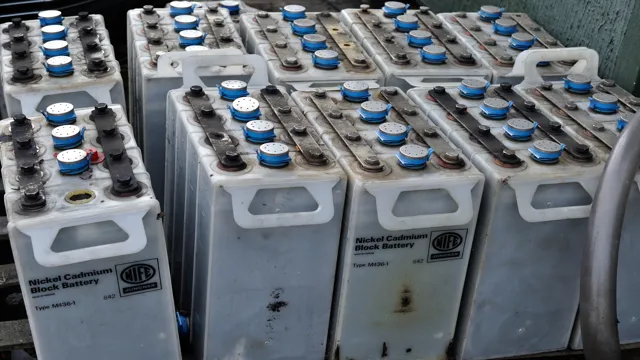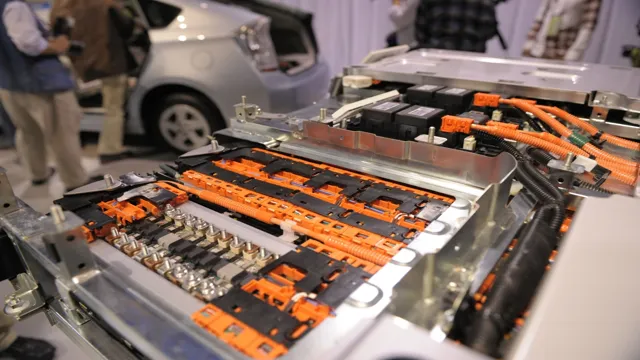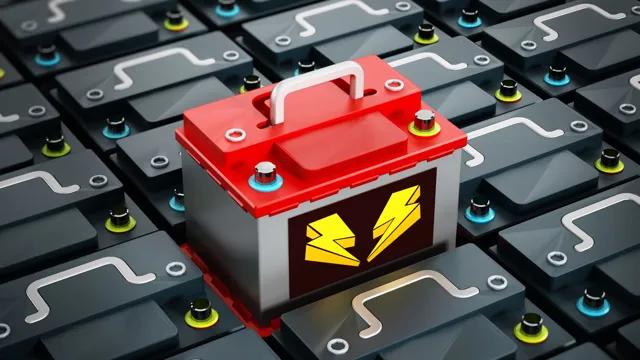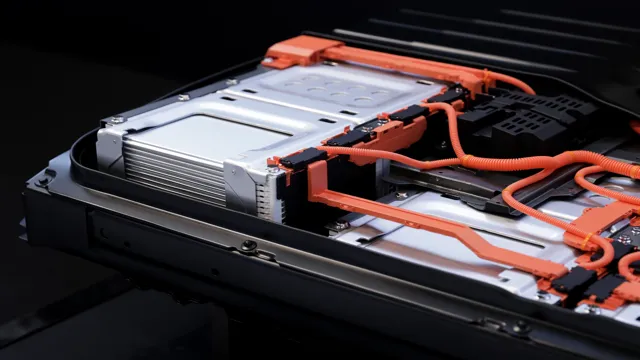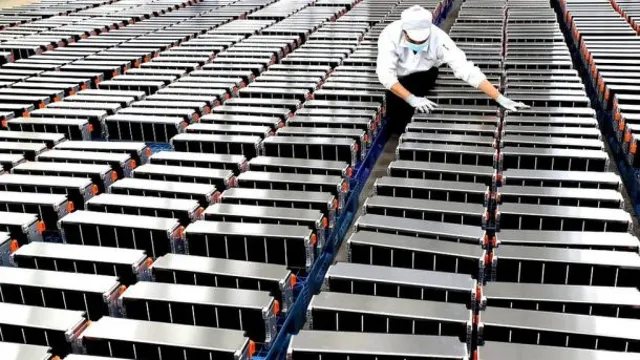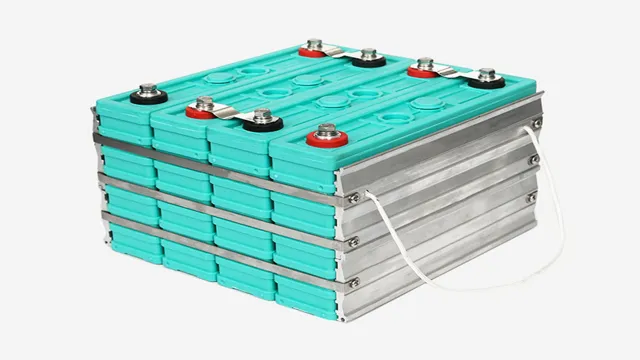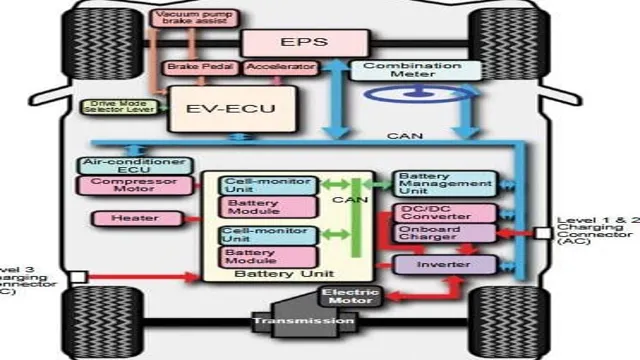Battery Innovations Take Electric Cars Further: Top Companies Leading the Charge
Gasoline-powered vehicles have been the norm for many years, but with the rise of electric cars, that trend may soon change. With government incentives, increased consumer demand, and advancements in technology, electric cars are quickly becoming a more feasible option for the average driver. The shift towards electric vehicles holds the promise of a cleaner future, reduced greenhouse gas emissions, and a decreased dependence on fossil fuels.
In this blog post, we will look into the rise of electric cars, key factors driving their growth, and what is in store for the future of transportation. Join me on this exciting journey as we explore the electric car’s potential to revolutionize the way we travel.
Current Trends in Battery Manufacturing
As electric cars become more popular, the demand for high-quality batteries continues to increase. Many companies are rising to the challenge of producing these batteries quickly and efficiently. Leading automakers such as Tesla, General Motors, and Ford are investing heavily in battery manufacturing, giving them the ability to produce their own batteries and stay ahead of the competition.
Other companies such as LG Chem, CATL, and Panasonic are also making significant strides in battery production. One current trend in battery manufacturing is the use of solid-state batteries, which promise to be lighter, more efficient, and longer-lasting than current lithium-ion batteries. With so many companies vying for a piece of the electric vehicle market, battery manufacturing is sure to continue developing at a rapid pace.
Global Market Overview
Battery manufacturing is a rapidly expanding industry, with global demand increasing as technology advances and environmental concerns grow. The current trends in battery manufacturing include a focus on increasing efficiency, reducing costs, and improving sustainability. One major development is the move towards lithium-ion batteries, which are lighter, more efficient, and have a longer lifespan.
This has been driven in part by the growth of electric vehicles, which rely heavily on high-quality batteries. In addition, there has been a shift towards more environmentally friendly manufacturing processes, including the use of renewable energy and recycling of materials. As competition increases, manufacturers are also adopting new technologies such as automation, robotics, and machine learning to improve production speed and reduce errors.
Overall, the battery manufacturing industry is an exciting and dynamic field, with innovative new developments emerging all the time.
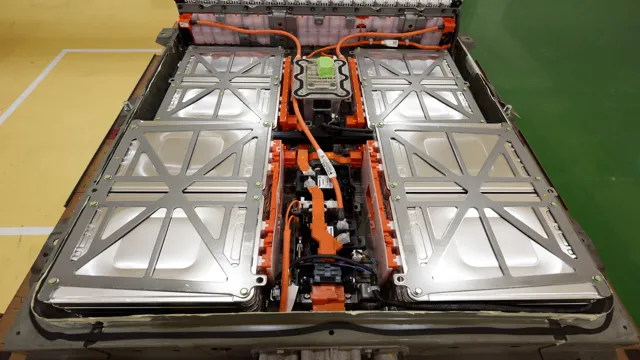
Advancements in Battery Technology
As technology evolves, the demand for better batteries increases. In recent years, the trend in battery manufacturing has been to produce batteries that are safer, more efficient, and eco-friendly. One remarkable advancement in battery technology is the use of solid-state batteries.
Unlike conventional batteries that use liquid electrolytes, solid-state batteries use a solid electrolyte that is safer and less prone to leakage. Another trend is the use of lithium-sulfur (Li-S) batteries that have a higher energy density than traditional lithium-ion batteries. However, Li-S batteries have limitations such as a shorter lifespan and a tendency to degrade with use.
To address these issues, researchers are exploring new materials and chemistries to improve the performance and durability of Li-S batteries. With these advancements in battery manufacturing, we can expect to see longer-lasting and more efficient batteries in the near future.
Leading Companies in the Electric Car Battery Industry
With the rise in popularity of electric cars, the demand for high-performance batteries to power them has also seen a significant surge. Several leading companies have made their mark in the electric car battery industry by producing top-quality batteries that are durable, efficient, and eco-friendly. Tesla, for instance, is considered a pioneer in the industry and is known for producing long-lasting, high-performance batteries that are used in their electric vehicles.
Another noteworthy player in the market is LG Chem. They are known for their wide range of battery models that cater to different types of electric vehicles. Additionally, Panasonic is also a prominent name that has been producing batteries for electric cars for over a decade.
Their batteries are widely used in hybrid cars as well. Other companies that are making waves in the electric car battery industry include Samsung SDI, CATL, and BYD. All of these companies have played a pivotal role in making electric vehicles more accessible and affordable, while also contributing to creating a more sustainable future.
Tesla
Tesla is undoubtedly one of the leading companies in the electric car battery industry. Known for its cutting-edge technology and innovation in the field, Tesla has become a household name when it comes to electric vehicles. With its sleek designs, impressive range, and fast acceleration, Tesla’s cars have gained a reputation as some of the best on the market.
The company has also revolutionized the battery industry, with its lithium-ion batteries powering not only its cars but also its home energy storage products. Tesla’s batteries offer high efficiency, quick charging times, and long lifetimes, making them ideal for a wide range of applications. Beyond its impressive technology, Tesla has also become known for its commitment to sustainability, with the company working hard to reduce its carbon footprint and promote renewable energy solutions.
With its exceptional products and forward-thinking approach, Tesla shows no signs of slowing down and is sure to remain a dominant player in the electric car battery industry for many years to come.
LG Chem
LG Chem is a well-known name in the electric car battery industry, and for good reason. As one of the leading companies in the field, they have been at the forefront of developing new battery technologies that are making electric cars increasingly practical and efficient. Their products are known for their high energy density, fast charging capabilities, and long-lasting durability.
What really sets LG Chem apart, though, is their commitment to sustainability. They have made significant strides in reducing the environmental impact of their products, from using recycled materials in their manufacturing processes to minimizing waste and emissions. All of this makes LG Chem a top choice for anyone looking to reduce their carbon footprint with the help of electric vehicles.
Panasonic
Panasonic is one of the leading companies in the electric car battery industry, providing innovative and efficient battery solutions for electric vehicles. With a strong technology foundation and extensive research and development efforts, Panasonic has emerged as a key player in the industry. Panasonic’s lithium-ion batteries are widely used in popular electric car models such as Tesla, making them a familiar and trusted brand among electric vehicle enthusiasts.
The company has also partnered with major automobile manufacturers to develop advanced battery technologies for next-generation electric cars, ensuring that they remain at the forefront of the industry. Overall, Panasonic is committed to driving sustainable transportation and revolutionizing the way we think about energy consumption in the automobile industry.
Challenges Faced by Electric Car Battery Manufacturers
Making batteries for electric cars is a complicated and challenging process. One of the primary challenges faced by companies that make batteries for electric cars is the high cost of producing them. The materials required for batteries are expensive, and the cost of production adds to the overall cost of electric cars.
This makes it difficult for electric cars to compete with traditional gasoline-powered cars on price. Another challenge is the limited range of electric cars. Batteries can store only a finite amount of energy, and this limits the distance that an electric car can travel on a single charge.
Battery manufacturers are constantly trying to improve the energy density and efficiency of their batteries to increase the range of electric cars. Finally, battery manufacturers face challenges related to safety. Lithium-ion batteries, which are commonly used in electric cars, can be unstable and pose a fire risk if not handled properly.
Ensuring the safety of the batteries is crucial, and manufacturers are always looking for ways to improve the safety of their products. Despite these challenges, companies that make batteries for electric cars continue to innovate and improve their products, pushing the boundaries of what is possible and helping to drive the transition to a more sustainable future.
Cost of Materials and Production
The cost of materials and production is one of the main challenges faced by electric car battery manufacturers. Although electric cars are becoming increasingly popular, the production of batteries remains costly. The battery pack is composed of expensive materials such as lithium-ion, cobalt, and nickel.
Due to the fluctuating demand for electric vehicles, the prices of these materials can be unpredictable, leading to supply chain disruptions. In addition, the production of batteries requires a considerable amount of energy, contributing to the overall cost of production. As a result, manufacturers are under pressure to reduce costs while maintaining the quality and reliability of their batteries.
Despite these challenges, advancements in technology and innovation are helping to make electric car batteries more affordable and accessible, paving the way for a more sustainable future.
Range Anxiety and Charging Infrastructure
One of the biggest challenges faced by electric car battery manufacturers is range anxiety and the lack of charging infrastructure. While electric cars have come a long way in terms of performance and reliability, they still suffer from limited range compared to traditional gasoline-powered cars. This can be a serious concern for drivers who may not have access to public charging stations or who are hesitant to take long trips for fear of running out of battery power.
To overcome this challenge, manufacturers are working on developing batteries with longer range and faster charging times, while also investing in building out a network of charging stations to make it easier for drivers to find and use them. However, there is still a long way to go to ease the concerns of drivers and make electric cars a truly viable and convenient option for all.
Future of Electric Car Batteries
As electric cars continue to gain traction, the demand for efficient and long-lasting batteries also grows. To meet this demand, various companies are stepping up to make batteries specifically for electric cars. One such company is Tesla, who has their own battery production plant.
Another is LG Chem, whose batteries can be found in popular cars like the Chevy Bolt and Hyundai Kona EV. Additionally, Panasonic and CATL are among the top suppliers of batteries to electric car manufacturers. With advancements in technology, we can expect to see even more innovative batteries designed for electric cars in the near future.
These batteries will aim to provide longer driving ranges, faster charging times, and greater reliability. As the market for electric cars continues to expand and become more competitive, the race to create the best battery will be an exciting one.
Conclusion
In conclusion, companies making batteries for electric cars are not just powering vehicles, but also fueling innovation and a sustainable future for our planet. With advancements in technology and infrastructure, the road ahead may be electric, but it’s clear that the companies leading the charge are charging up a brighter tomorrow. After all, it’s not just about what drives us, but how we drive forward in a rapidly evolving world.
So let’s buckle up, plug in, and enjoy the ride!
FAQs
Which companies are known for making batteries for electric cars?
There are several companies that are known for manufacturing batteries for electric cars such as Tesla, Panasonic, LG Chem, Samsung SDI, and CATL.
What types of batteries are used in electric cars?
Lithium-ion batteries are primarily used in electric cars due to their high energy density, long lifespan, and rechargeability.
How long do electric car batteries last?
The lifespan of an electric car battery can vary depending on several factors such as the type of battery, how often it is charged/discharged, and environmental conditions. In general, most electric car batteries are designed to last between 8-10 years or up to 100,000 miles.
Can electric car batteries be recycled?
Yes, electric car batteries can be recycled. The components of the battery such as the cathode, anode, and electrolyte can be recovered and reused. This helps reduce waste and conserve resources.
